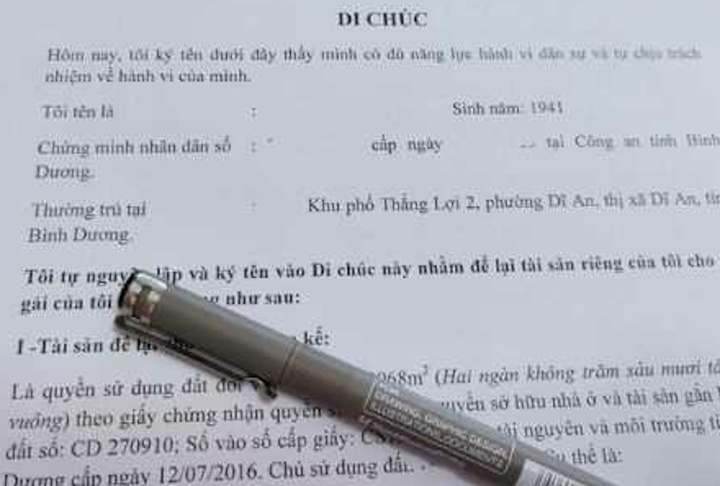However, assets cannot always be divided according to a will. There are many complex legal situations that can affect the execution of a will, leading to disagreement or failure to divide assets as desired:
Wills declared invalid: A will is only valid if it is made legally and validly. Under the law, a will can be declared invalid if it does not meet the requirements of form and content. For example, if the will is not notarized, there are no witnesses (if necessary), or the testator does not have full civil capacity at the time of making the will, the will can be considered invalid. When a will is invalid, the assets will be distributed according to the law of inheritance, instead of according to the wishes in the will.
Unclear or contradictory will contents: A will needs to be clear and specific to avoid disputes during the execution process. If the will has contradictory or unclear parts, this may lead to the testator's wishes not being carried out. In this case, the parties involved may have to turn to the court to resolve, clarify and determine how the assets will be divided.
There is an objection from the heir: In some cases, the heir may object to the will, claiming that it is unfair or suspecting that the testator was psychologically influenced in making the decision. These objections, if strong and well-founded enough, can stop the execution of the will. The court will review and decide whether to continue to execute the will or adjust the way the assets are distributed.

There are many complex legal situations that can affect the execution of a will.
A will that does not cover all of the assets: When a will only covers part of the assets, the remaining assets that are not listed will not automatically be distributed according to the will. In this situation, the assets that are not listed will be dealt with according to the provisions of the law on inheritance, usually divided according to the order of inheritance prescribed by law.
There are hidden or omitted heirs: Another situation that can arise is that the testator intentionally or unintentionally omits some of the legal heirs. If these do not accept the omission and have grounds to prove their rights, the will may be reconsidered.
Although a will is an effective tool to express the wishes of the deceased, it must be made legally and clearly. The inability to divide assets according to the will often occurs due to legal factors or disagreements between the parties involved. Therefore, when making a will, careful legal advice is needed to avoid unnecessary risks.
Source: https://vtcnews.vn/khi-nao-khong-the-chia-tai-san-theo-di-chuc-cua-cha-me-de-lai-ar903024.html











































![[Video] Hue Monuments reopen to welcome visitors](https://vphoto.vietnam.vn/thumb/402x226/vietnam/resource/IMAGE/2025/11/05/1762301089171_dung01-05-43-09still013-jpg.webp)



































































Comment (0)